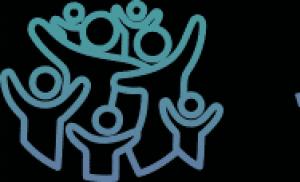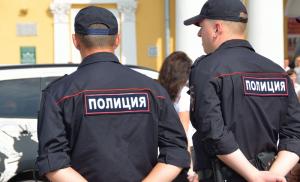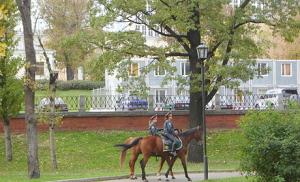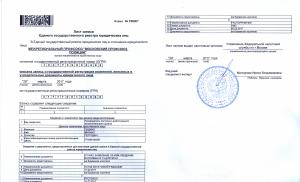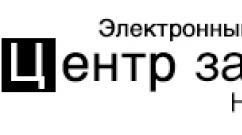Fable mirror and monkey moral analysis. Than counting gossips to work, is it not better to turn on yourself, godfather
The fabulist Krylov was always able to clearly and clearly show the shortcomings of people using the example of animals, ridiculing their vices, and the author has many such works, among them Krylov's fable Mirror and a monkey, and in order to understand the essence of the fable, we suggest getting acquainted with its text.
Krylov Mirror and Monkey
It all starts with the fact that the monkey accidentally saw his reflection in the mirror, but the whole point is that the monkey does not understand only one thing, she sees herself, therefore she criticizes the “mug” with such ease, and even shares her observations with the bear that was near. The monkey tells him that if she had such an erysipelas, with some kind of "antics", "grimaces", she would "strangle herself with longing." At the same time, she tells the bear that she has such gossips. To which the clubfoot advised her not to count other monkeys, but to look at herself. But since the bear did not directly tell the monkey that it was her reflection in the mirror, the advice went unnoticed.
Krylov Mirror and monkey main idea
The moral of Krylov's fable is: "No one likes to recognize himself in satire." Krylov in the fable The Mirror and the Monkey managed to show us the ignorance of people, people who tend to see the shortcomings of others, but they don’t notice their own, they don’t even notice that they act in exactly the same way, or even worse. Probably, in Krylov's fable "The Mirror and the Monkey" this is the main idea.
Listen to Krylov's fable
Each of us has our own shortcomings. This cannot be avoided - ideal people do not exist. But it is one thing to have and admit these shortcomings, and it is quite another to deny and blame another for them, as we do more and more often, as well as the monkey from the fable “The Mirror and the Monkey”.
Fable "Mirror and Monkey"
Monkey, in the Mirror seeing his image,
Quietly Bear's foot:
“Look,” he says, “my dear godfather!
What kind of a face is that?
What antics and jumps she has!
I would choke myself with longing,
If only she looked a little like her.
But, admit it, there is
Of my gossips, there are five or six such wimps:
I can even count them on my fingers.” -
“What are the gossips to consider working,
Isn't it better to turn on yourself, godfather? -
Mishka answered her.
But Mishen'kin's advice just disappeared in vain.
There are many such examples in the world:
Nobody likes to recognize himself in satire.
I even saw this yesterday:
That Klimych is unclean at hand, everyone knows this;
They read about bribes to Klimych.
And he furtively nods at Peter.
The moral of Krylov's fable "The Mirror and the Monkey"
According to the classics of the genre, Ivan Andreevich concluded the moral of the fable "The Mirror and the Monkey" in one of the last lines of his work - in a phrase that does not require explanation and has become a quote from the moment the instructive poem was published: "No one likes to recognize himself in satire." But in order not to do this, it is enough just to be able to admit your mistakes and shortcomings.
Analysis of the fable "The Mirror and the Monkey"
The fable "The Mirror and the Monkey" was based on Krylov's "favorite" human vice - ignorance. It is ridiculed literally in every line of the work: both where the monkey, having found a mirror, did not recognize itself in it, and where it is described with what disgust she looked at an unfamiliar reflection, and where a stupid animal compares the “grimacing” with her friends , and, of course, where the monkey ignores the advice of the bear to look at himself.
It is to look at oneself from the outside that the author calls on all those who are used to judging the actions of others. Moreover, with the help of this fable, Krylov is trying to force a specific bribe-taker to do this, for which he inserts his last name into the text.
Winged expressions from the fable "The Mirror and the Monkey"
- “What are the gossips to consider working, isn’t it better to turn around for yourself, godfather?” - is used in the fable "The Mirror and the Monkey" as a reproach to those who look for flaws in others instead of objectively, with the proper degree of criticism, look at themselves before that.
Monkey, in the Mirror seeing his image,
Quietly Bear's foot:
“Look,” he says, “my dear godfather!
What kind of a face is that?
What antics and jumps she has!
I would choke myself with longing,
If only she looked a little like her.
But, admit it, there is
Of my gossips, there are five or six such wimps:
I can even count them on my fingers."
"What gossips consider to work,
Isn't it better to turn on yourself, godfather?" -
Mishka answered her.
But Mishen'kin's advice just disappeared in vain.
There are many such examples in the world:
Nobody likes to recognize himself in satire.
I even saw this yesterday:
That Klimych is unclean at hand, everyone knows this;
They read about bribes to Klimych.
And he furtively nods at Peter.
Moral of the fable "The Mirror and the Monkey"
The moral of the fable about the monkey, who condemned his own reflection, seen in the mirror, but did not recognize himself, is contained in the lines of creation that "No one likes to recognize himself in satire."
Indeed, many of us very clearly distinguish other people's shortcomings, and can talk about what is "good" and what is "bad", about right or wrong actions when it comes to other people.
But few of us are able to admit our own shortcomings and mistakes.
With this fable, Ivan Krylov teaches us, before condemning bad habits or the wrong behavior of another person, first analyze our own behavior and correct the mistakes made.
During his very long creative life, Ivan Andreevich Krylov wrote more than 200 fables. He not only revived the interest of Russian society in this rather rare genre, but also turned the fable itself into a subtle tool for influencing the minds, heart, and conscience of a person. For more than one century, the fables of the great Russian fabulist have been included in the school curriculum of Russian literature, playing a very important teaching and educational role.
Not all fables are equally popular, however, “The Mirror and the Monkey” is just the case when the text of the work is literally “torn apart” into quotes, and almost every adult, even from school, can quote it.
Surprisingly, history has preserved for certain the date of creation of the work - on January 2, 1816, Krylov finished the fable and soon published it in the magazine Son of the Fatherland.
Once Monkey got hold of a mirror somewhere and began to gaze intently at her reflection. With indignation, the Monkey noticed, turning to the Bear, how ugly the “face” was in the mirror, what disgusting jumps and antics she had. And she concluded that if she herself looked like this “stranger” in the mirror, she would simply hang herself out of longing. Although among her gossips there really are such antics.
But the Bear replied with a grin to the stupid Monkey that before discussing her gossips, it would be better if she looked at herself. But the Monkey, as you might guess, did not understand the advice of the Bear.
A rare case: Krylov at the end of the fable, that is, in its moralizing part, introduces two more common characters - Klimych and Peter. The author remembers them as his friends. Like, he recently saw Klimych and everyone knows about him that he takes bribes, but the impudent Klimych, dishonest, stealthily points at Peter.
Analysis of the moral of the work
The two heroes of the fable personify two different types of people: the Monkey is stupid, envious, boastful, loving gossip, and the Bear, which can be described as wise, calm, smart.
In his work, Krylov refers specifically to personal shortcomings, and not to social vices. The poet Khemnitzer noted that, unfortunately, everyone is involved in this shortcoming in one way or another - the unwillingness to see bad traits in oneself, and it is great to notice even minor mistakes in others. A wise Russian proverb immediately comes to mind: “I can see a mote in someone else’s eye, but I don’t see a log in my own.”
The author vividly shows the comedy of the situation that the Monkey herself created. Not realizing that in the reflection of the mirror it is she, the Monkey herself, the heroine begins to discuss her gossips, noticing that they are not beautiful and grimacing.
As we know, Krylov, choosing animals as the main characters, always implies a person with a characteristic set of qualities. And here he even emphasizes his allegory by introducing human characters at the end of the work. It is not known whether this message was addressed to some specific people (which happened more than once in the poet's fables) or is it just a collective image of vile people who do not see the "skeleton in the closet", but like to point out the shortcomings of others.
The fable "The Mirror and the Monkey" is one of the original works. Although similar plots with similar morals were developed by others, early fabulists. For example, Aesop said that every person has two bags from birth. In front hangs one in which a person wears other people's shortcomings, and behind a bag with his weaknesses and sins. That's why other people's cons are visible better.
And one more instructive message can be caught in the fable - this is the unwillingness and inability to accept criticism, advice, a lesson. After listening to the wise word of the Bear, the Monkey did not understand anything. So it is in life...
The monkey, seeing himself in the mirror, told the Bear that there was some kind of mug in the mirror. She doesn’t like her very much, she knows about five or six such monkeys, and she would hang herself with longing if she looked like her! The bear replied that before counting gossips, you must first look at yourself. But Monkey did not listen to his advice. The author says that there are many such people around, for example, the bribe taker Klimych, although he himself is not clean, he blames Peter for this.
Read the Mirror and the Monkey fable online
Monkey, in the Mirror seeing his image,
Quietly Bear's foot:
“Look,” he says, “my dear godfather!
What kind of a face is that?
What antics and jumps she has!
I would choke myself with longing,
If only she looked a little like her.
But, admit it, there is
Of my gossips, there are five or six such wimps:
I can even count them on my fingers. —
“What are the gossips to consider working,
Isn't it better to turn on yourself, godfather? —
Mishka answered her.
But Mishen'kin's advice just disappeared in vain.
There are many such examples in the world:
Nobody likes to recognize himself in satire.
I even saw this yesterday:
That Klimych is unclean at hand, everyone knows this;
They read about bribes to Klimych.
And he furtively nods at Peter.

(Illustrated by Irina Petelina)
Moral of the fable The mirror and the monkey
People easily notice flaws in others, but hardly recognize their own negative traits.
It is to look at oneself from the outside that the author calls on all those who are used to judging the actions of others. Moreover, with the help of this fable, Krylov is trying to force a specific person to do this - a bribe-taker, for which he inserts his last name into the text.
